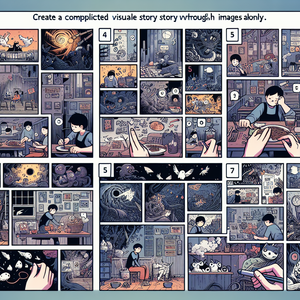Beyond the Paycheck: The Hidden Benefits of Being an X-Ray Technician

One of the most compelling reasons to consider a career as an x-ray technician is the job stability inherent in this growing field. According to the U.S. Bureau of Labor Statistics, employment for radiologic technologists, including x-ray technicians, is projected to grow by 9% from 2020 to 2030, outpacing the average growth for all occupations. This increase is largely driven by an aging population that requires more diagnostic imaging services and continuous advancements in medical technology that enhance imaging capabilities. For individuals entering the healthcare profession, this robust job outlook provides a sense of security and assurance. The consistent demand for skilled x-ray technicians means that job seekers can expect ample opportunities, reducing the anxiety often associated with finding stable employment. Such job security allows technicians to focus on their responsibilities and the quality of care they provide to patients.
Flexible Hours for Work-Life Balance
Another significant advantage of being an x-ray technician is the flexibility in work hours. Many healthcare facilities, including hospitals and outpatient clinics, operate 24/7, creating a variety of shift options. This flexibility enables technicians to select schedules that align with their personal lives, whether they prefer traditional day shifts or evening and weekend hours. For instance, this adaptability is particularly beneficial for parents or caregivers who need to coordinate their work hours with family commitments. Additionally, this flexibility allows technicians to pursue further education or additional certifications, as they can work part-time or adjust their schedules to accommodate their studies. The ability to maintain a healthy work-life balance is a critical factor in overall job satisfaction, distinguishing x-ray technicians from many other professions that may offer less flexible arrangements.
Opportunities for Advancement
The field of radiology presents numerous opportunities for career advancement. X-ray technicians can further their education and training in specialized areas such as MRI, CT scans, or mammography, often leading to higher salaries and increased responsibilities. Specialization not only enhances a technician's skill set but also opens doors to various career trajectories within the healthcare system. Moreover, many x-ray technicians pursue leadership roles, such as radiology department supervisors or educators, allowing them to share their expertise with others and shape the next generation of healthcare professionals. The potential for growth and advancement in this field serves as a significant draw for ambitious individuals eager to expand their career horizons.
The Emotional Rewards of Helping Patients
Perhaps the most profound benefit of being an x-ray technician lies in the emotional fulfillment derived from helping patients. Technicians frequently interact with individuals during vulnerable moments, providing comfort and reassurance as patients undergo diagnostic imaging procedures. Establishing a rapport with patients and contributing to their health and well-being can be incredibly rewarding. Consider the story of an x-ray technician who worked with a young child experiencing anxiety about undergoing an x-ray. By taking the time to explain the procedure in a manner that the child could understand and employing a gentle approach, the technician not only alleviated the child’s fear but also received heartfelt appreciation from the parents. Such moments of connection and the ability to positively impact patients' experiences are what many technicians value most about their work.
While the salary associated with being an x-ray technician is undoubtedly an important consideration, the hidden benefits of this profession present a more comprehensive understanding of the career landscape. Job stability, flexible hours, opportunities for advancement, and the emotional rewards of patient care collectively create a compelling case for pursuing a career as an x-ray technician. For those contemplating this path, it’s essential to recognize that fulfillment in one’s career often transcends financial considerations, enriching both professional lives and personal satisfaction. As the healthcare industry continues to evolve, x-ray technicians will remain a vital and rewarding part of the healthcare equation, contributing not only to the advancement of medical technology but also to the well-being of the patients they serve.
MRI Technologist
Hospitals, outpatient imaging centers, and specialized radiology clinics
Core Responsibilities
Operate MRI machines to produce high-quality images for diagnosis.
Prepare patients for procedures, ensuring they understand the process and addressing any concerns.
Maintain and troubleshoot MRI equipment to ensure optimal functionality.
Required Skills
Proficiency in MRI safety protocols and imaging techniques.
Strong interpersonal skills for effective patient communication.
Attention to detail to ensure high-quality imaging results.
Radiologic Technologist
Hospitals, diagnostic imaging centers, and urgent care facilities
Core Responsibilities
Perform diagnostic imaging examinations using X-ray and fluoroscopy equipment.
Collaborate with physicians to determine appropriate imaging procedures.
Ensure proper patient positioning and equipment calibration for accurate results.
Required Skills
Knowledge of anatomy and medical terminology relevant to imaging.
Ability to work in a fast-paced environment while maintaining patient care standards.
Certification from the American Registry of Radiologic Technologists (ARRT).
CT Technologist
Hospitals, radiology departments, and outpatient imaging facilities
Core Responsibilities
Conduct CT scans and assist in the interpretation of results for diagnostic purposes.
Prepare and administer contrast media as needed, ensuring patient safety.
Maintain accurate records of procedures and patient information.
Required Skills
Expertise in computed tomography technology and safety practices.
Strong analytical skills to assist radiologists in interpreting images.
Certification in CT imaging through ARRT or similar organizations.
Radiology Nurse
Hospitals, imaging centers, and outpatient surgical facilities
Core Responsibilities
Provide specialized nursing care for patients undergoing imaging procedures.
Monitor patients' vital signs and manage pre- and post-procedure care.
Educate patients about imaging procedures and prepare them for what to expect.
Required Skills
Strong background in nursing, particularly in critical care or radiology.
Excellent communication and patient advocacy skills.
Certification in Advanced Cardiac Life Support (ACLS) may be required.
Radiologic Equipment Sales Representative
Medical device companies, imaging technology firms, and healthcare sales organizations
Core Responsibilities
Sell radiologic imaging equipment and technology to healthcare facilities.
Provide product demonstrations and educate clients on equipment features.
Maintain relationships with existing clients and develop new business opportunities.
Required Skills
Strong understanding of radiology and imaging technologies.
Excellent negotiation and sales skills, with a focus on building client relationships.
Experience in biomedical engineering or sales in the healthcare sector is a plus.


